France in 2015: Ten problems it must face
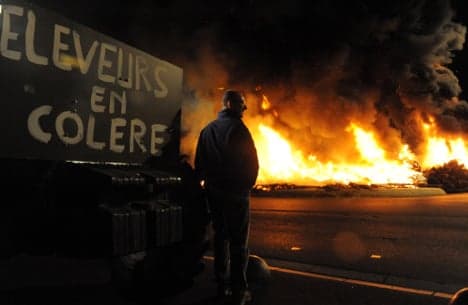
What problems does France face in 2015? A new warts and all report has laid bare the challenges the country faces, whilst revealing that old issues have not been dealt with.
So how is France in the year 2015?
Elements of the right-wing Anglo press, certain disenchanted French expats, or even your classic morose Frenchman who has stayed at home, have been highlighting, perhaps even in revelling in the country's decline for years.
A new 128-page survey, named The State of France in 2015 has tried to determine the health of the country, three years in to the presidency of Socialist François Hollande and at a time when the country's economic growth has ground to a halt.
While the report by France's Economic, Social and Environmental Council (CESE) is at pains to point out the positives, of which there are many (they can be read by clicking here) it has also stressed a number of challenges facing the country in part because old problems have not been dealt with.
Here's a look at the main problems facing France in 2015.
Isolated banlieues
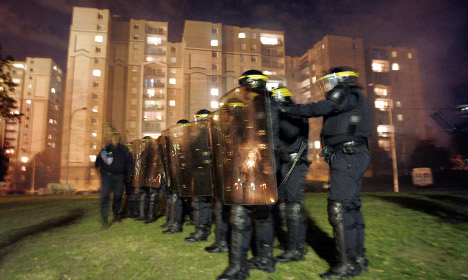
Les Banlieues, or poor city suburbs, have been a source of concern in France for years, yet in 2015 nothing seems to have changed.
Often located on the outskirts of town, where transport links and job prospects are poor, the suburbs are marked by high tower blocks housing lower class families, many of whom are immigrants struggling to get by in a country that does not feel like home.
The problem of the neglected banlieues made world headlines in 2005, when riots erupted across the country. Ten years on and little appears to have changed, despite various attempts.
The CESE report says banlieues have become the “principal victims of the crisis and of the fragmentation of French Society.”
Ten million French people live in these neighbourhoods. In some of the more deprived neighbourhoods the unemployment rate among young men is 45 percent.
Rural France in dangerous decline

But it's not just the suburbs of France's cities that are home to the country's poor. More and more people living in rural areas are "descending into poverty", a fact the thousands of farmers who protested across the country earlier this year can attest to.
Just like the banlieues, those living in parts of rural France can feel socially excluded, due in part to lack of public transport, services and social facilities.
Around 11 million people reside in the French countryside, some 18 percent of the country's population.
Those struggling the most are farmers whose crops or cattle don't yield enough income, elderly who live in poor conditions and also earn little, and young people who are under-qualified and often split from their families.
The State of France report also highlights the struggles that new arrivals have. In other words, people leave big cities and head into the countryside looking for an ideal life and quickly realize jobs can be hard to come by and services are limited.
Rent increases outpacing salary rises
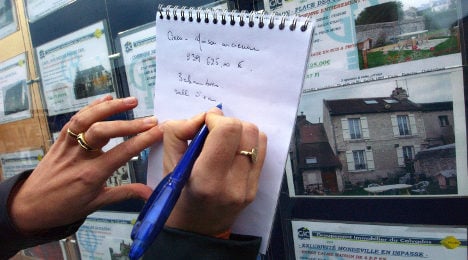 Due to the ongoing housing crisis, combined with only minimal wage rises in recent years, more and more households are having to spend a higher proportion of their hard earned money on covering their rent.
Due to the ongoing housing crisis, combined with only minimal wage rises in recent years, more and more households are having to spend a higher proportion of their hard earned money on covering their rent.
Dogged unemployment
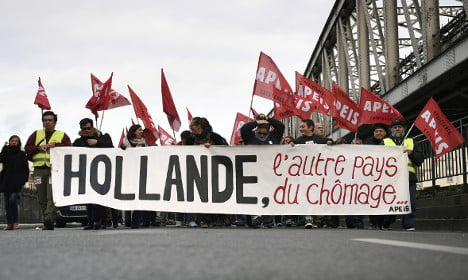
France has long suffered from high unemployment rates that despite favourable conditions such as a weak euro and a fall in petrol prices have so far stubbornly refused to drop.
In its report, CESE makes it clear that high unemployment is “the most dangerous threat” to France’s national cohesion. It suggests the government's attempts to deal with the rising figures are inadequate and has called on ministers to carry out a “complete evaluation” of the policies that have been put in place to try to reduce the jobless rate.
Increasing poverty
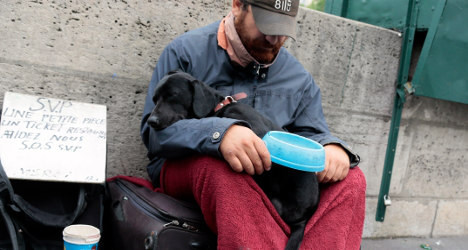
A major concern for France is the number of people and in particular the number of children living in poverty in 2015.
The most recent stats from INSEE show one in five children live below the poverty line as do 14 percent of the population.
And those figures don’t even include the homeless, prisoners and those living in retirement homes, who are normally among the poorest.
The role of the family threatened
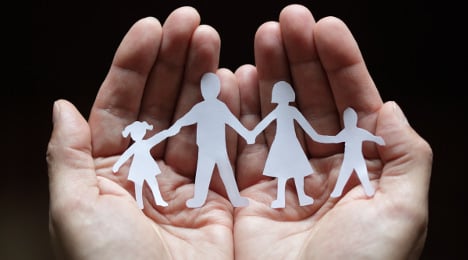 The report notes that the family is the bedrock of French society and can help prevent poverty and isolation, but pressure to make savings in the social security budget means worse-off families are at risk of losing vital help.
It points to a reform of family allowances and cuts to corporation taxes that were used to help families to suggest the government is in danger of getting its priorities wrong and risk further weakening families.
Growing French mistrust for institutions
The report notes that the family is the bedrock of French society and can help prevent poverty and isolation, but pressure to make savings in the social security budget means worse-off families are at risk of losing vital help.
It points to a reform of family allowances and cuts to corporation taxes that were used to help families to suggest the government is in danger of getting its priorities wrong and risk further weakening families.
Growing French mistrust for institutions
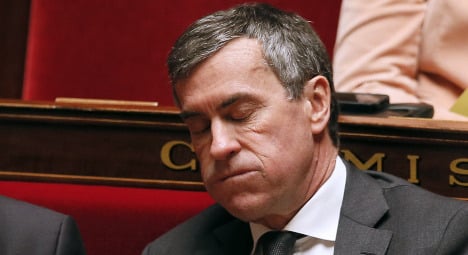 The report suggests that the confidence of the French public in its government and institutions has been eroded by certain politicians being caught and convicted of various forms of corruption.
This erosion of faith in the integrity of politicians has resulted in a "dangerous" rise in abstention in elections, particularly regional and local ones.
Finally and perhaps more significantly, an increasingly number of people are voting for extreme parties like Marine Le Pen's National Front.
Inequality is rising and austerity is making it worse
The report suggests that the confidence of the French public in its government and institutions has been eroded by certain politicians being caught and convicted of various forms of corruption.
This erosion of faith in the integrity of politicians has resulted in a "dangerous" rise in abstention in elections, particularly regional and local ones.
Finally and perhaps more significantly, an increasingly number of people are voting for extreme parties like Marine Le Pen's National Front.
Inequality is rising and austerity is making it worse
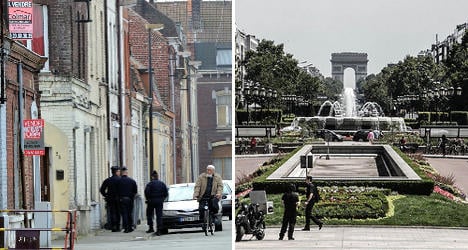 Despite recent stats suggesting a slight decrease in the gap between rich and poor, the CESE report says on the whole inequality has widened in France during the financial crisis.
The government's policy of austerity is also making it worse because it hits the poorest people the hardest.
National cohesion at risk
Despite recent stats suggesting a slight decrease in the gap between rich and poor, the CESE report says on the whole inequality has widened in France during the financial crisis.
The government's policy of austerity is also making it worse because it hits the poorest people the hardest.
National cohesion at risk
 The report has a stark warning for France, still recovering from a shock of the January terror attacks, by starting that the national cohesion is at danger of fracturing in part due to the inequalities as well as the state's inability to deal with them.
Again, this plays into the hands of extremist political groups.
Environmental challenges
The report has a stark warning for France, still recovering from a shock of the January terror attacks, by starting that the national cohesion is at danger of fracturing in part due to the inequalities as well as the state's inability to deal with them.
Again, this plays into the hands of extremist political groups.
Environmental challenges
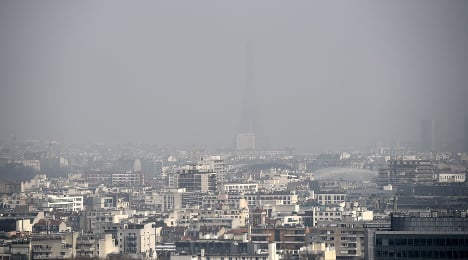 The report notes France's urgent need to shift to sustainable energy sources, encourage recycling and other environmentally-friendly behaviour, as well as fight pollution in the cities.
So how to fix all this?
While recommending a review of policies aimed at cutting unemployment, more investment in families and schools as well as root and branch reform of the tax system to boost fairness and social justice, the author of the report Daniel-Julien Noël, said there was only option for France.
"It's time for politicians to look beyond short-term objectives, and to commit to long-terms plans, and draw up a new sense of ambition for France. Only by doing this will politics rediscover its nobility."
But it's not all bad.
The report notes France's urgent need to shift to sustainable energy sources, encourage recycling and other environmentally-friendly behaviour, as well as fight pollution in the cities.
So how to fix all this?
While recommending a review of policies aimed at cutting unemployment, more investment in families and schools as well as root and branch reform of the tax system to boost fairness and social justice, the author of the report Daniel-Julien Noël, said there was only option for France.
"It's time for politicians to look beyond short-term objectives, and to commit to long-terms plans, and draw up a new sense of ambition for France. Only by doing this will politics rediscover its nobility."
But it's not all bad.

Comments
See Also
So how is France in the year 2015?
Elements of the right-wing Anglo press, certain disenchanted French expats, or even your classic morose Frenchman who has stayed at home, have been highlighting, perhaps even in revelling in the country's decline for years.
A new 128-page survey, named The State of France in 2015 has tried to determine the health of the country, three years in to the presidency of Socialist François Hollande and at a time when the country's economic growth has ground to a halt.
While the report by France's Economic, Social and Environmental Council (CESE) is at pains to point out the positives, of which there are many (they can be read by clicking here) it has also stressed a number of challenges facing the country in part because old problems have not been dealt with.
Here's a look at the main problems facing France in 2015.
Isolated banlieues

Les Banlieues, or poor city suburbs, have been a source of concern in France for years, yet in 2015 nothing seems to have changed.
Often located on the outskirts of town, where transport links and job prospects are poor, the suburbs are marked by high tower blocks housing lower class families, many of whom are immigrants struggling to get by in a country that does not feel like home.
The problem of the neglected banlieues made world headlines in 2005, when riots erupted across the country. Ten years on and little appears to have changed, despite various attempts.
The CESE report says banlieues have become the “principal victims of the crisis and of the fragmentation of French Society.”
Ten million French people live in these neighbourhoods. In some of the more deprived neighbourhoods the unemployment rate among young men is 45 percent.
Rural France in dangerous decline


Dogged unemployment

France has long suffered from high unemployment rates that despite favourable conditions such as a weak euro and a fall in petrol prices have so far stubbornly refused to drop.
In its report, CESE makes it clear that high unemployment is “the most dangerous threat” to France’s national cohesion. It suggests the government's attempts to deal with the rising figures are inadequate and has called on ministers to carry out a “complete evaluation” of the policies that have been put in place to try to reduce the jobless rate.
Increasing poverty

A major concern for France is the number of people and in particular the number of children living in poverty in 2015.
The most recent stats from INSEE show one in five children live below the poverty line as do 14 percent of the population.
And those figures don’t even include the homeless, prisoners and those living in retirement homes, who are normally among the poorest.






Join the conversation in our comments section below. Share your own views and experience and if you have a question or suggestion for our journalists then email us at [email protected].
Please keep comments civil, constructive and on topic – and make sure to read our terms of use before getting involved.
Please log in here to leave a comment.